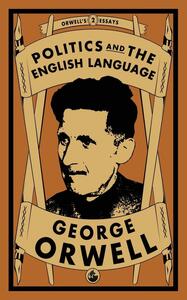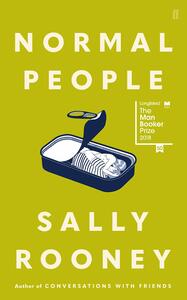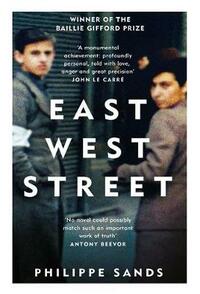Take a photo of a barcode or cover
chrispowers's Reviews (243)
I bought this book a long while ago while visiting London with a couple of friends. Working in a Catholic College, it became all the more interesting to get stuck into, though I was not a fan of the red page edges that others found notable.
The first chapter of this book I struggled to get into, but after that I quickly found my way, reaching about the halfway point and then resolving to read the remainder in one evening. It’s a book with several twists near the end, which made for a lot of excitement. The clanger dropped at the end leaves you wondering how the newly elected Pope will be treated in the course of their mandate.
For me, I really felt for the character of Cardinal Lomeli. Though not religious myself, Lomeli’s opening speech of the Conclave, where the Holy Spirit had taken over him, will stick with me. The defence of uncertainty and the attack on certainty, and in doing so making the case for humanity, faith, and hope, was really powerful and spoke to me. It’s a theme repeated throughout the book, with the inner thoughts of Lomeli expressed throughout, and even for example the Kant quote referring to the wonky timbers from which humanity is ultimately, inescapably made.
You don’t need any religious inclination to enjoy this book, and maybe if you are religious your experience of it will be different but hopefully still enriching. It’s easy to go through, exciting towards the end, and with a great protagonist that you feel for throughout.
The first chapter of this book I struggled to get into, but after that I quickly found my way, reaching about the halfway point and then resolving to read the remainder in one evening. It’s a book with several twists near the end, which made for a lot of excitement. The clanger dropped at the end leaves you wondering how the newly elected Pope will be treated in the course of their mandate.
For me, I really felt for the character of Cardinal Lomeli. Though not religious myself, Lomeli’s opening speech of the Conclave, where the Holy Spirit had taken over him, will stick with me. The defence of uncertainty and the attack on certainty, and in doing so making the case for humanity, faith, and hope, was really powerful and spoke to me. It’s a theme repeated throughout the book, with the inner thoughts of Lomeli expressed throughout, and even for example the Kant quote referring to the wonky timbers from which humanity is ultimately, inescapably made.
You don’t need any religious inclination to enjoy this book, and maybe if you are religious your experience of it will be different but hopefully still enriching. It’s easy to go through, exciting towards the end, and with a great protagonist that you feel for throughout.
I didn’t really get the Cato reference when buying this book, it has to be said. But then again, as a committed European Federalist this entire book probably wasn’t aimed at me.
It is very easy to read, and that is the point, mass appeal. It is useful for pro-Europeans, many of whom need to brush up on their history of the project. This does that job very succinctly and in a moderately entertaining way. The concept of Guilty Men is interesting - how many do we each agree with? I am broadly in alignment with the reader, though I would probably be harsher on Michael Gove!
I don’t make a habit of reading Brexit books, partly because of my own interests, and partly because they will inevitably age badly. This book however has some utility for so long as we Remainers are pushing to end Brexit / for a People’s Vote.
It is very easy to read, and that is the point, mass appeal. It is useful for pro-Europeans, many of whom need to brush up on their history of the project. This does that job very succinctly and in a moderately entertaining way. The concept of Guilty Men is interesting - how many do we each agree with? I am broadly in alignment with the reader, though I would probably be harsher on Michael Gove!
I don’t make a habit of reading Brexit books, partly because of my own interests, and partly because they will inevitably age badly. This book however has some utility for so long as we Remainers are pushing to end Brexit / for a People’s Vote.
Very very short. But one to read slowly, and to take care to digest properly. I was pleased to see that some of Orwell’s emphases, for example on brevity, I already aspire to in my own writing (at work). However, I am as guilty of latinisation and hellenisation as anybody, and of using similes and metaphors in place of words too often. I think this bluntly argued essay has made me at least consider how basic is my own work - and to aim to impress less with fancy vocabulary and more with powerful ideas..
The review of Mein Kampf at the end also hit hard. It is important to be reminded of how charismatic people found Hitler at the time, and Orwell does this. It is of course nice to bask in his criticisms of Hitler’s unchanging mind and of Mein Kampf, but it is the seductive appeal of his ideas and their being presented in an effective way, by people who look the part of the audience of the day, that must take home from this short review, from the works of Hannah Arendt and so many others, and from the demagogues we see around us today.
The review of Mein Kampf at the end also hit hard. It is important to be reminded of how charismatic people found Hitler at the time, and Orwell does this. It is of course nice to bask in his criticisms of Hitler’s unchanging mind and of Mein Kampf, but it is the seductive appeal of his ideas and their being presented in an effective way, by people who look the part of the audience of the day, that must take home from this short review, from the works of Hannah Arendt and so many others, and from the demagogues we see around us today.









